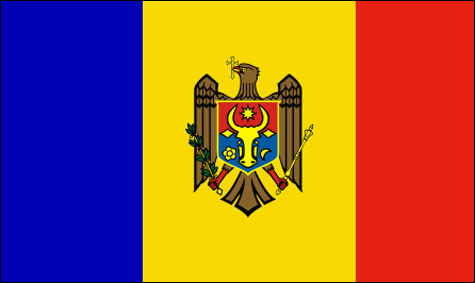
FACT: Plenty of countries poorer than Moldova are happier. |
Remember how — before he really had something to cry about, pre–Super Bowl XLII — Tom Brady got all existential on 60 Minutes, asking, “Why do I have three Super Bowl rings and still think there’s something greater out there for me?” The obvious answer was, “Boo-hoo and stop whining.” But maybe Brady, like a good-sized chunk of the US populace, ought to consider relocating: the US comes in at #23 in a “happiness study” cited by NPR foreign correspondent Eric Weiner in his new The Geography of Bliss.
Weiner — consulting various scientific data as well as “happiness ingredients” like monetary wealth — went to nine countries (10 including the US, none in Africa or Latin America) to get the scoop on how, as he puts it, “where we are is vital to who we are.” He writes with an engaging curiosity, and The Geography of Bliss is like a travelogue from the perspective of an affable, self-depreciating philosopher who throws himself right into the task: he eats rotten shark in Iceland, gets fried on Moroccan hash in the Netherlands, and graciously accepts a 14-inch gift penis in Bhutan. His conclusions? “Money matters, but less than we think and not in the way that we think. Family is important. So are friends. Envy is toxic. So is excessive thinking. Beaches are optional. Trust is not. Neither is gratitude.” Simple enough, but his insights en route are fascinating.
Take the desert country Qatar, perhaps the richest, most boring/bored country in the world. Its citizens are so coddled that college students are given a government allowance, and when men marry, the government gives them land, an interest-free mortgage, and a monthly allowance of about $7000. Electricity, health care, and education are free. People are reduced to showing off by buying a “Ridiculously Expensive Pen.” Weiner calls Qatar “the ultimate welfare state,” since Qataris are given so much and do not pay any taxes. Taxes, he decides, improve a country’s contentment, but not having them isn’t the only thing that might drive Qataris to commit — Weiner cites Emile Durkheim — “anomic suicide.” There’s also the heat, the lack of culture, the lack of any sense of the past, the absence of a national identity. And hotels that feel like tombs, at least to Weiner.
At the other end of the bank is Moldova, which can at least partly blame its wretchedness on poverty. Still, as Weiner points out, plenty of countries poorer than Moldova are happier. Moldova comes across as hell on earth — cultureless (a museum has an exhibit about dirt), distrustful, pessimistic, and self-centered. One popular expression is, “Not my problem.” Moldova seems to nurture the worst aspects of humanity.
Moldova’s almost-polar opposite is Iceland, give or take geothermal flatulence and six months of darkness each year. Icelanders — along with the Swiss and the Danes — are at the top of the world’s scale of happiness, and why not? The Icelandic government has safety-net policies that allow people to switch careers without fear of failure, and it nurtures writers. Creativity is pervasive, and artists find inspiration in the strange and beautiful landscape. A few pops of “black death,” the Icelandic national drink, don’t hurt either.